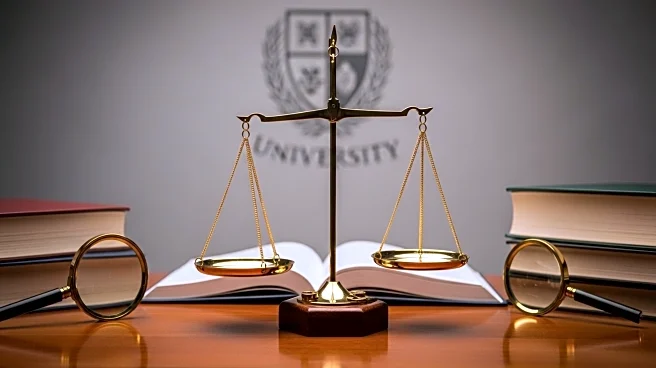What's Happening?
A Nigerian law firm, F.K. Nnadi & Co., has issued pre-action notices to the University of Lagos (UNILAG) and Obafemi Awolowo University (OAU) over alleged irregularities in their Post-Unified Tertiary Matriculation Examination (Post-UTME) results. The firm claims that both universities awarded unjustifiably low scores and withheld results without explanation, potentially affecting students' admission prospects. The firm has requested intervention from the House of Representatives and the National Universities Commission, demanding transparency and access to answer scripts and marking schemes. UNILAG has denied any technical glitches, attributing flagged cases to violations of examination guidelines.
Why It's Important?
This legal action highlights significant concerns about the integrity and transparency of university admissions processes in Nigeria. The alleged irregularities could impact thousands of students, affecting their educational and career opportunities. The situation underscores the need for reliable examination systems and accountability in higher education institutions. If successful, the legal action could lead to reforms in the Post-UTME process, ensuring fair treatment of candidates and improving trust in the system. Educational stakeholders, including students and universities, stand to be affected by the outcome of this dispute.
What's Next?
The law firm has given OAU three months and UNILAG 30 days to comply with its requests, failing which it plans to pursue legal action in a Federal High Court. The universities may need to review their examination processes and address the concerns raised. The involvement of the House of Representatives and the National Universities Commission could lead to broader discussions on examination standards and transparency in Nigeria's higher education system.
Beyond the Headlines
This situation could prompt a reevaluation of examination software and processes in Nigerian universities, potentially leading to technological upgrades and improved monitoring systems. The case also raises ethical questions about the fairness and transparency of university admissions, which could influence future policies and practices in the education sector.








